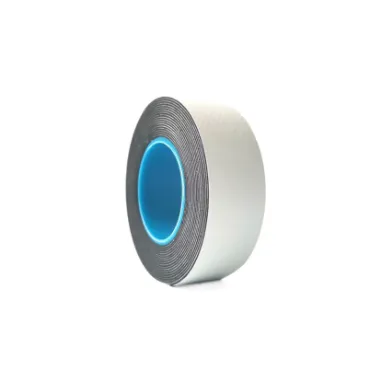Rubber tape is a flexible, self-fusing, and highly durable solution used across industries for everything from electrical insulation to pipe sealing. Whether you're working in high-voltage environments or sealing HVAC lines, electrical rubber tape offers long-lasting protection under tough conditions.

As demand for heat-resistant, waterproof tape increases globally, more buyers are turning directly to a reliable rubber tape factory to source high-quality products at competitive prices. In this guide, we’ll cover what rubber tape is, its most common applications, how to assess quality, and what affects rubber tape price when buying in bulk or wholesale.
What Is Rubber Tape?
Rubber tape is a pressure-sensitive or self-bonding adhesive tape made from various rubber compounds like ethylene propylene rubber (EPR), silicone rubber, or butyl rubber. Unlike traditional vinyl tapes, rubber tape is designed to stretch, conform, and create an airtight, waterproof seal — often without adhesive.
Most rubber tape is used for:
Electrical insulation
Moisture sealing
Heat and UV resistance
Corrosion prevention
Mechanical protection
Thanks to its unique characteristics, rubber tape is essential in heavy-duty applications where standard tape materials would fail.
Types of Rubber Tape
When shopping or sourcing from a rubber tape factory, it’s important to know the different types and their uses.
1. Electrical Rubber Tape
Often made of EPR or silicone.
Self-fusing: bonds to itself without glue.
Used to insulate high-voltage cables and splices.
Resists UV, ozone, and water.
2. កាសែតកៅស៊ូ Butyl
Non-curing, tacky tape used for air or water sealing.
Ideal for automotive, roofing, or ductwork applications.
Strong adhesion to glass, metal, and plastic.
3. Silicone Rubber Tape
Extremely high heat resistance (up to 260°C).
Often used in aerospace or industrial maintenance.
Electrically insulating and flame-retardant.
4. Rubberized Waterproof Tape
Surface-applied tape with a waterproof backing.
Often used for plumbing, patching, or sealing leaks.
Each tape type serves different industries — so always confirm specifications when requesting samples or placing bulk orders.
Common Applications of Rubber Tape
Electrical rubber tape is widely used by electricians, utility workers, and industrial technicians for:
Insulating cable joints and splices
Protecting high-voltage connections
Bundling and shielding wire harnesses
Weatherproofing outdoor or underground cables
In other industries, rubber tape is used for:
Sealing air ducts in HVAC systems
Wrapping pipes to prevent corrosion
Patching leaks in hoses or roofing materials
Reducing vibration in mechanical systems
Emergency repairs in marine and automotive settings
Rubber tape's versatility makes it essential in environments where exposure to moisture, heat, or chemicals is common.
Sourcing from a Rubber Tape Factory
If you're a wholesaler, distributor, or OEM buyer, working directly with a rubber tape factory can save significant costs and ensure product consistency.
Benefits of sourcing from a manufacturer:
Lower unit prices (especially for large orders)
Private labeling or OEM services
Access to custom formulations (for temperature, thickness, or color)
Reliable production capacity and lead times
Global shipping and compliance support
What to ask a rubber tape factory:
What materials do you use (EPR, silicone, butyl)?
Do you support international certifications (RoHS, UL, ISO)?
Can I request custom widths, thicknesses, or packaging?
What is your typical lead time for 10,000+ rolls?
Do you offer product testing or samples?
Many rubber tape factories are based in China, India, and Southeast Asia — where you’ll find high production capability and competitive pricing.
Understanding Rubber Tape Price
The rubber tape price can vary significantly depending on:
Material type (EPR and silicone are more expensive than butyl)
Roll size and thickness
Branding and packaging
MOQ (minimum order quantity)
Market fluctuations in raw material cost
Certifications or export requirements
Estimated pricing (as of recent averages):
|
Tape Type |
Retail Price per Roll |
Wholesale Price per Roll |
|
EPR Electrical Tape |
$6 – $12 |
$2 – $5 (bulk orders) |
|
Silicone Tape |
$8 – $15 |
$4 – $7 |
|
កាសែតកៅស៊ូ Butyl |
$5 – $10 |
$1.50 – $4 |
|
Waterproof Patch Tape |
$10 – $20 |
$5 – $8 |
For buyers seeking a cheap rubber tape solution without sacrificing quality, sourcing directly from manufacturers or bulk distributors is the best strategy.
Rubber Tape FAQs
Q1: Is rubber tape the same as electrical tape?
A: No. Rubber tape is generally thicker, self-fusing, and made for higher voltage applications. Standard vinyl electrical tape is cheaper but less durable.
Q2: Can rubber tape be used outdoors?
A: Yes. Most electrical rubber tape is weatherproof, UV-resistant, and ideal for outdoor or underground use.
Q3: What’s the shelf life of rubber tape?
A: Unopened and stored properly, rubber tape can last 2–5 years depending on the material. Silicone tape typically has the longest shelf life.
Q4: Can I buy rubber tape in custom sizes or colors?
A: Yes. Most rubber tape factories offer OEM options, including custom widths, colors, and branding for large orders.
Q5: Where can I find the best rubber tape price?
-
XIANGFAN Rubber Tape-Ultimate Solutions for All Your Insulation Needsព័ត៌មានJun.24,2025
-
XIANGFAN Rubber Tape-Protection for Industrial and Residential Applicationsព័ត៌មានJun.24,2025
-
XIANGFAN Rubber Tape: Superior Safety and Sealing for Demanding Environmentsព័ត៌មានJun.24,2025
-
XIANGFAN Rubber Tape: Reliable Solutions for Every Electrical Challengeព័ត៌មានJun.24,2025
-
XIANGFAN Electrical & Industrial Tape: Powering Reliability Across Industriesព័ត៌មានJun.24,2025
-
XIANGFAN Electrical & Industrial Tape: Excellence in Every Applicationព័ត៌មានJun.24,2025
